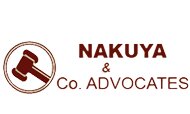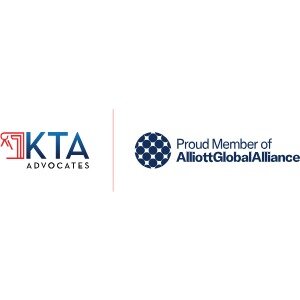Best Structured Finance Lawyers in Uganda
Share your needs with us, get contacted by law firms.
Free. Takes 2 min.
Or refine your search by selecting a city:
List of the best lawyers in Uganda
About Structured Finance Law in Uganda
Structured finance in Uganda refers to a set of complex financial instruments and arrangements designed to manage risk and liquidity, provide credit, and facilitate large-scale funding. These transactions commonly involve the pooling and repackaging of financial assets like loans, receivables, or mortgages into securities such as asset-backed securities or bonds. Structured finance methods are often used for infrastructure projects, commercial real estate, corporate financing, and public-private partnerships. In Uganda, structured finance supports economic development by enabling businesses and government entities to access significant capital while managing credit and operational risks.
Why You May Need a Lawyer
Structured finance arrangements are typically intricate, involve multiple parties, and require a deep understanding of financial and legal frameworks. You may need a lawyer in the following situations:
- Structuring a financing deal involving securitization or asset-backed securities
- Negotiating or drafting legal documents such as loan agreements, trust deeds, and security agreements
- Ensuring compliance with regulatory requirements set by Ugandan authorities
- Advising on tax implications and structuring to optimize fiscal efficiency
- Conducting due diligence on counterparties and underlying assets
- Resolving disputes or defaults on structured finance arrangements
- Advising on the legal risks of investing in or issuing structured finance products
Legal guidance helps to mitigate risks, ensure regulatory compliance, and safeguard parties' interests in complex transactions.
Local Laws Overview
Uganda does not have a single comprehensive law governing structured finance, but several statutes and regulations are relevant to these transactions:
- The Financial Institutions Act, 2004 - Regulates financial institutions and sets forth rules for lending, securitization, and structured lending products.
- The Capital Markets Authority Act, Cap 84 - Governs the issuance and trading of securities, including asset-backed securities.
- The Companies Act, 2012 - Outlines corporate structures, special purpose vehicles, and requirements for creating and registering entities partaking in structured finance deals.
- Insolvency Act, 2011 - Addresses creditor protection, liquidation procedures, and the treatment of security interests in insolvency.
- Contracts Act, 2010 - Governs the formation and enforcement of contracts, which are essential in structured finance transactions.
- Collateral Registry - Operates under The Security Interest in Movable Property Act, 2019, supporting the registration of security interests in movable assets.
These laws are complemented by regulations from the Bank of Uganda and the Capital Markets Authority, which supervise financial and capital markets participants. Compliance is crucial to avoid legal and financial penalties.
Frequently Asked Questions
What is structured finance?
Structured finance refers to complex financial transactions that involve pooling financial assets and converting them into tradable securities, often to raise capital or manage risk.
Who typically uses structured finance in Uganda?
Corporations, banks, government agencies, and large project sponsors are the main users because structured finance allows them to access large funding or transfer risk.
Are there regulations specific to structured finance products in Uganda?
While there is no standalone law, structured finance products are governed by several sectoral laws on financial institutions, securities, companies, and contract law.
Do I need a special license to issue structured finance products?
Entities wishing to issue structured finance products must typically register with the Capital Markets Authority and may need additional licenses depending on the product type and underlying assets.
What are some common risks in structured finance deals?
Risks include credit risk, legal and documentation risk, market risk, and operational risk. Proper structuring and legal advice can help mitigate these risks.
How do structured finance products differ from traditional loans?
Structured finance products are usually more complex, may involve pooling and repackaging of assets, and create tradable securities, unlike traditional single-lender loans.
Can foreigners invest in structured finance products in Uganda?
Yes, foreigners are allowed to invest, but must comply with investment, financial, and tax regulations in Uganda.
What is a special purpose vehicle (SPV) and why is it used?
An SPV is a separate legal entity created to isolate financial risk. It is often used to hold the assets in structured finance deals, protecting sponsors from financial exposure.
What happens if there is a default in a structured finance transaction?
The legal documents will outline remedies and enforcement actions. Ugandan insolvency and contract law, as well as any agreed arbitration or court processes, apply.
How can a lawyer help with a structured finance deal?
A lawyer ensures the deal complies with Ugandan laws, prepares and reviews documents, structures the transaction, and helps resolve disputes or regulatory issues.
Additional Resources
If you require more information or assistance in the field of structured finance in Uganda, consider reaching out to the following organizations:
- Capital Markets Authority (CMA) - Supervises and regulates capital markets and securities offerings.
- Bank of Uganda - The central bank, overseeing banking and financial sector regulations.
- Uganda Law Society - Maintains a directory of qualified lawyers, including finance and banking law specialists.
- Uganda Registration Services Bureau (URSB) - Handles company and SPV registrations and maintains the collateral registry.
- Financial Intelligence Authority (FIA) - Monitors anti-money laundering compliance in financial transactions.
Additionally, major law firms in Uganda often publish guides or articles on structured finance and related topics, which can provide useful insights.
Next Steps
If you need legal assistance in structured finance in Uganda, these steps can guide you:
- Clarify your goals and the nature of the transaction or issue you are facing.
- Gather all relevant documentation, such as contracts, financial statements, and communication with other parties.
- Contact a qualified lawyer experienced in structured finance. The Uganda Law Society and major law firms are good starting points to find an expert.
- Schedule a consultation to discuss your needs, risks involved, and potential solutions.
- Work with your lawyer to structure the transaction, review legal documents, and ensure compliance with Ugandan law and regulatory requirements.
- Stay engaged throughout the process to address any issues promptly with professional legal support.
Structured finance in Uganda offers many opportunities but comes with legal and regulatory complexity. Seeking proper legal advice is essential to protect your interests and achieve a successful outcome.
Lawzana helps you find the best lawyers and law firms in Uganda through a curated and pre-screened list of qualified legal professionals. Our platform offers rankings and detailed profiles of attorneys and law firms, allowing you to compare based on practice areas, including Structured Finance, experience, and client feedback.
Each profile includes a description of the firm's areas of practice, client reviews, team members and partners, year of establishment, spoken languages, office locations, contact information, social media presence, and any published articles or resources. Most firms on our platform speak English and are experienced in both local and international legal matters.
Get a quote from top-rated law firms in Uganda — quickly, securely, and without unnecessary hassle.
Disclaimer:
The information provided on this page is for general informational purposes only and does not constitute legal advice. While we strive to ensure the accuracy and relevance of the content, legal information may change over time, and interpretations of the law can vary. You should always consult with a qualified legal professional for advice specific to your situation.
We disclaim all liability for actions taken or not taken based on the content of this page. If you believe any information is incorrect or outdated, please contact us, and we will review and update it where appropriate.
Browse structured finance law firms by city in Uganda
Refine your search by selecting a city.
















